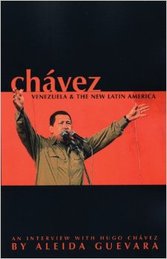The Evolution and Significance of the Cuban Revolution:
The light in the darkness
Charles McKelvey
The light in the darkness
Charles McKelvey
Table of Contents Page
1 The Global and Historical Context 1
2 The Cuban Anti-colonial Revolution 27
3 The Failure of the Cuban Neocolonial Republic 43
4 The Taking of Power by the People 77
5 The Cuban Revolutionary Project 113
6 The Structural Crisis of the Neocolonial World-System 145
7 The Third World Project of National and Social Liberation 179
8 Socialism for the Twenty-First Century 209
9 Renewing the Historic Quest for Socialism 233
Appendix 251
Index 271
Book abstract
The book interprets the Cuban revolutionary movement from 1868 to 1959 as a continuous process that sought political independence and social and economic transformation of colonial and neocolonial structures. In 1959, the revolution took power from a national elite subordinate to foreign capital, and placed it in the hands of the people; and it subsequently developed alternative structures of popular democracy that keep delegates of the people in power. As a result of its persistence and its capacity to affect economic and social change, Cuba has become a symbol of hope for the Third World. Meanwhile, the capitalist world-economy has entered a multifaceted and sustained global crisis. In order to prevent its further fall into chaos, the world-system must affect structural changes, but it lacks the political will. Simultaneously, a renewed Third World emancipatory project, with the support and leadership of Cuba, is taking initial steps in constructing an alternative and more just world-system. These dynamics establish conditions for popular democratic socialist revolutions in the North.
Chapter abstracts
Chapter 1: The Global and Historical Context
Provides a historical and global context for understanding the Cuban Revolution and its meaning. The chapter describes the structures of the world-system, the historical development of the world-system, the spectacular ascent of the United States, the role of imperialist policies, and the characteristics of U.S. hegemony in the neocolonial world-system.
Chapter 2: The Cuban Anti-Colonial Revolution
Describes the economic structures of Spanish colonialism as well as the emergence of an anti-colonial revolution. The revolutionary war of independence of 1868 to 1878 failed to attain its goals, as a result of internal divisions. In the 1880s, José Martí was able to unify the revolution on the basis of the principles of independence from Spain and the creation of an inclusive republic, by all and for the good of all. He led the revolution in the launching of second revolutionary war in 1895, but the U.S. intervention of 1898 prevented its triumph. Under U.S. supervision, the Constitution of 1901 was “made in the USA.” In the first twenty years of the republic, U.S. economic and ideological penetration increased significantly. A neocolonial republic was consolidated.
Chapter 3: The Failure of the Cuban Neocolonial Republic
The chapter emphasizes the limitations of the Cuban system of representative democracy from the period 1920 to 1951, including its defense of the interests of national and international elites, and its incapacity to provide for the basic needs of the people. It depicts the popular movements as forged by various popular sectors of whites, blacks, mulattoes, women and men, workers, peasants, and professionals, integrating issues of class, race, and gender with anti-imperialism. It also notes the failures of the reformist projects of elected presidents, Gerardo Machado and Ramón Grau.
Chapter 4: The Taking of Power by the People
Interprets the triumph of the Cuban revolution as a consequence of (1) the characteristics of Cuban political culture, and (2) the exceptional capacities of Fidel Castro. Cuban political culture was characterized by a belief in heroism and in human possibilities, in spite of the disappointments of the neocolonial republic. Fidel was an exceptional political actor who understood Cuban political culture, who combined theoretical and historical reflection with common-sense intelligence, and who was committed to ethical and revolutionary values. Led by Fidel, the revolution was able to unify various tendencies in order to take power, and to consolidate its power through decisive action in defense of popular interests and needs. In the process, Fidel contributed to the evolution of Marxist-Leninist theory.
Chapter 5: The Cuban Revolutionary Project
The chapter describes seven stages in the development of the Cuban revolutionary project: national liberation, 1959-61; Cuban socialism based on industrial development, 1961-65; Cuban socialism based on sugar exportation, 1966-70; institutionalization, 1970-85; rectification of errors, 1986-89; special period, 1989-2001; and integration into the Latin American revolution, 2001 to the present. It explains the Cuban structures of popular democracy, developed as an alternative to representative democracy. It further develops previous discussion of charismatic authority and leadership, and it describes the role of the Cuban Communist Party in the Cuban political process.
Chapter 6: The Structural Crisis of the Neocolonial World-System
The chapter provides an analysis of the sustained structural crisis of the world-system, which showed its first symptoms in the 1970s, and which has resulted from the fact that the world-system has reached the geographical limits of the earth. It notes the symptoms of the crisis: the elimination of the gold standard; the U.S. double deficit; neoliberal economic policies; factory relocation; escalating financial speculation; and new wars of aggression by the core powers, led by the United States. The chapter also observes the relative economic decline of the United States and its increasing reliance on military action. It maintains that the U.S. economic and military attacks on the Third World violate the rules of neocolonial domination, which it developed during the period 1933 to 1965.
Chapter 7: The Third World Project of National and Social Liberation
Reviews the Third World project of national and social liberation of the period 1946 to 1979, formulated by the giants of the anti-colonial struggles of the Third World. The chapter analyzes the derailing of the Third World project, in conjunction with the imposition of the neoliberal project, with the cooperation of accommodationists of the Third World, powerfully criticized by Fidel. It maintains that there has been a renewal of the Third World project of since 1994. In Latin America, a political change has occurred, represented by ALBA, UNASUR, and CELAC. In the Third World as a whole, the renewal is evident in the formation of BRICS and in the retaking of the historic Third World agenda by the Non-Aligned Movement.
Chapter 8: Socialism for the Twenty-First Century
Four Latin American nations have rejected not only neoliberalism and U.S. imperialism, but also capitalism, and they are seeking to construct post-capitalist societies evolving in practice toward socialism. Charismatic leaders have played a principal role in the socialist projection: Hugo Chávez in Venezuela, Evo Morales in Bolivia, Rafael Correa in Ecuador, and Daniel Ortega in Nicaragua. These four governments have developed new constitutions, restructured external debt payments, taken control of natural recourses, directed investments toward the needs of the people and of national production, and developed structures of popular participation. The four nations and their charismatic leaders have played a central role in the creation of a new political reality in Latin America.
Chapter 9: Renewing the Historic Quest for Socialism
The chapter formulates the twelve characteristics of socialism, based on observation of real socialism in Russia, China, Vietnam, Cuba, Chile, Nicaragua, Venezuela, Bolivia and Ecuador. The most important characteristic is the taking of power by the people. Other characteristics include commitment to basic principles: the sovereignty of nations, cooperation among nations, solidarity among peoples, the social and economic rights of all persons, gender equality, and protection of the environment. Socialist nations have developed various forms of property, always with a strong role of the state in the development of the economy. The chapter discusses the possibility of popular democratic socialist revolutions in the nations of the North. It concludes with the observation that humanity has a choice between two different civilizational projects.
Appendix: The Rise of Trump and the Failure of the Left
The Trump project is characterized by continuation of the post-2001 “war on terrorism,” clampdown on illegal immigration, reduction of legal immigration, economic nationalism, support of corporations in their conflict with the ecology movement, an increase in military capacity, and populist rhetoric. The project has some components in common with twentieth century European fascism, but it is fascism in a new form, with sophisticated ideological manipulation and some space for minorities. It has risen to power, in part, because of the failure of the Left to provide an alternative narrative, particularly with respect to the issues of terrorism and uncontrolled international immigration. The Left ought to formulate an alternative, based in encounter with the Third World and on the principle of North-South cooperation.
1 The Global and Historical Context 1
2 The Cuban Anti-colonial Revolution 27
3 The Failure of the Cuban Neocolonial Republic 43
4 The Taking of Power by the People 77
5 The Cuban Revolutionary Project 113
6 The Structural Crisis of the Neocolonial World-System 145
7 The Third World Project of National and Social Liberation 179
8 Socialism for the Twenty-First Century 209
9 Renewing the Historic Quest for Socialism 233
Appendix 251
Index 271
Book abstract
The book interprets the Cuban revolutionary movement from 1868 to 1959 as a continuous process that sought political independence and social and economic transformation of colonial and neocolonial structures. In 1959, the revolution took power from a national elite subordinate to foreign capital, and placed it in the hands of the people; and it subsequently developed alternative structures of popular democracy that keep delegates of the people in power. As a result of its persistence and its capacity to affect economic and social change, Cuba has become a symbol of hope for the Third World. Meanwhile, the capitalist world-economy has entered a multifaceted and sustained global crisis. In order to prevent its further fall into chaos, the world-system must affect structural changes, but it lacks the political will. Simultaneously, a renewed Third World emancipatory project, with the support and leadership of Cuba, is taking initial steps in constructing an alternative and more just world-system. These dynamics establish conditions for popular democratic socialist revolutions in the North.
Chapter abstracts
Chapter 1: The Global and Historical Context
Provides a historical and global context for understanding the Cuban Revolution and its meaning. The chapter describes the structures of the world-system, the historical development of the world-system, the spectacular ascent of the United States, the role of imperialist policies, and the characteristics of U.S. hegemony in the neocolonial world-system.
Chapter 2: The Cuban Anti-Colonial Revolution
Describes the economic structures of Spanish colonialism as well as the emergence of an anti-colonial revolution. The revolutionary war of independence of 1868 to 1878 failed to attain its goals, as a result of internal divisions. In the 1880s, José Martí was able to unify the revolution on the basis of the principles of independence from Spain and the creation of an inclusive republic, by all and for the good of all. He led the revolution in the launching of second revolutionary war in 1895, but the U.S. intervention of 1898 prevented its triumph. Under U.S. supervision, the Constitution of 1901 was “made in the USA.” In the first twenty years of the republic, U.S. economic and ideological penetration increased significantly. A neocolonial republic was consolidated.
Chapter 3: The Failure of the Cuban Neocolonial Republic
The chapter emphasizes the limitations of the Cuban system of representative democracy from the period 1920 to 1951, including its defense of the interests of national and international elites, and its incapacity to provide for the basic needs of the people. It depicts the popular movements as forged by various popular sectors of whites, blacks, mulattoes, women and men, workers, peasants, and professionals, integrating issues of class, race, and gender with anti-imperialism. It also notes the failures of the reformist projects of elected presidents, Gerardo Machado and Ramón Grau.
Chapter 4: The Taking of Power by the People
Interprets the triumph of the Cuban revolution as a consequence of (1) the characteristics of Cuban political culture, and (2) the exceptional capacities of Fidel Castro. Cuban political culture was characterized by a belief in heroism and in human possibilities, in spite of the disappointments of the neocolonial republic. Fidel was an exceptional political actor who understood Cuban political culture, who combined theoretical and historical reflection with common-sense intelligence, and who was committed to ethical and revolutionary values. Led by Fidel, the revolution was able to unify various tendencies in order to take power, and to consolidate its power through decisive action in defense of popular interests and needs. In the process, Fidel contributed to the evolution of Marxist-Leninist theory.
Chapter 5: The Cuban Revolutionary Project
The chapter describes seven stages in the development of the Cuban revolutionary project: national liberation, 1959-61; Cuban socialism based on industrial development, 1961-65; Cuban socialism based on sugar exportation, 1966-70; institutionalization, 1970-85; rectification of errors, 1986-89; special period, 1989-2001; and integration into the Latin American revolution, 2001 to the present. It explains the Cuban structures of popular democracy, developed as an alternative to representative democracy. It further develops previous discussion of charismatic authority and leadership, and it describes the role of the Cuban Communist Party in the Cuban political process.
Chapter 6: The Structural Crisis of the Neocolonial World-System
The chapter provides an analysis of the sustained structural crisis of the world-system, which showed its first symptoms in the 1970s, and which has resulted from the fact that the world-system has reached the geographical limits of the earth. It notes the symptoms of the crisis: the elimination of the gold standard; the U.S. double deficit; neoliberal economic policies; factory relocation; escalating financial speculation; and new wars of aggression by the core powers, led by the United States. The chapter also observes the relative economic decline of the United States and its increasing reliance on military action. It maintains that the U.S. economic and military attacks on the Third World violate the rules of neocolonial domination, which it developed during the period 1933 to 1965.
Chapter 7: The Third World Project of National and Social Liberation
Reviews the Third World project of national and social liberation of the period 1946 to 1979, formulated by the giants of the anti-colonial struggles of the Third World. The chapter analyzes the derailing of the Third World project, in conjunction with the imposition of the neoliberal project, with the cooperation of accommodationists of the Third World, powerfully criticized by Fidel. It maintains that there has been a renewal of the Third World project of since 1994. In Latin America, a political change has occurred, represented by ALBA, UNASUR, and CELAC. In the Third World as a whole, the renewal is evident in the formation of BRICS and in the retaking of the historic Third World agenda by the Non-Aligned Movement.
Chapter 8: Socialism for the Twenty-First Century
Four Latin American nations have rejected not only neoliberalism and U.S. imperialism, but also capitalism, and they are seeking to construct post-capitalist societies evolving in practice toward socialism. Charismatic leaders have played a principal role in the socialist projection: Hugo Chávez in Venezuela, Evo Morales in Bolivia, Rafael Correa in Ecuador, and Daniel Ortega in Nicaragua. These four governments have developed new constitutions, restructured external debt payments, taken control of natural recourses, directed investments toward the needs of the people and of national production, and developed structures of popular participation. The four nations and their charismatic leaders have played a central role in the creation of a new political reality in Latin America.
Chapter 9: Renewing the Historic Quest for Socialism
The chapter formulates the twelve characteristics of socialism, based on observation of real socialism in Russia, China, Vietnam, Cuba, Chile, Nicaragua, Venezuela, Bolivia and Ecuador. The most important characteristic is the taking of power by the people. Other characteristics include commitment to basic principles: the sovereignty of nations, cooperation among nations, solidarity among peoples, the social and economic rights of all persons, gender equality, and protection of the environment. Socialist nations have developed various forms of property, always with a strong role of the state in the development of the economy. The chapter discusses the possibility of popular democratic socialist revolutions in the nations of the North. It concludes with the observation that humanity has a choice between two different civilizational projects.
Appendix: The Rise of Trump and the Failure of the Left
The Trump project is characterized by continuation of the post-2001 “war on terrorism,” clampdown on illegal immigration, reduction of legal immigration, economic nationalism, support of corporations in their conflict with the ecology movement, an increase in military capacity, and populist rhetoric. The project has some components in common with twentieth century European fascism, but it is fascism in a new form, with sophisticated ideological manipulation and some space for minorities. It has risen to power, in part, because of the failure of the Left to provide an alternative narrative, particularly with respect to the issues of terrorism and uncontrolled international immigration. The Left ought to formulate an alternative, based in encounter with the Third World and on the principle of North-South cooperation.





